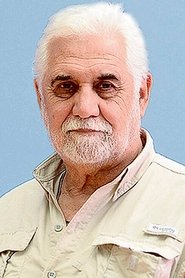 Alejandro Legaspi
Montevideo, Uruguay
Alejandro Legaspi
Montevideo, Uruguay

Born in Uruguay in 1948. In 1967 he studied painting at the School of Fine Arts. The following year he joined the Cinematheque del Tercer Mundo and collaborated as a cameraman on the documentary: The Flag We Raise and as an editor in A measles epidemic. In 1974 he emigrated to Peru where he formed the production company Marcha and devoted himself to making documentaries, among which the following stood out: And it remains silent and Hit that drawer. In 1979, in Nicaragua, he participated in Victoria de un pueblo en armas (documentary) and in the fiction feature Insurrección by Peter Lilienthal. He was also an advisor to the Nicaraguan Film Institute. In 1982 -with Stefan Kaspar, Fernando Espinoza, María Barea, Fernando Barreto- he formed the Grupo Chaski film collective in Lima. He worked as a cameraman, editor and director of documentaries such as Miss Universe in Peru, Peru ni leche ni gloria, Paths of liberation, Encounter of little men, Margot the circus, Crisanto el haitiano and co-directed feature films such as Gregorio (1984) and Juliana ( 1989). In the 90s he directed documentaries and fiction short films for the production company Verde Luna. Later, he directed the documentary Tiempo de memoria (2005), Dreams far away (2007), Otto Brun's The Haphazard Path of Faith (2012) and the fictional feature film The Last News (2014); among others. At the same time, he has served as a professor at the Catholic University of Peru and the Charles Chaplin Institute in courses on: filmmaking, journalistic documentary and photography direction. He, likewise, has been on two occasions a jury at the Havana Film Festival and a jury at the contest for film projects in Colombia, Uruguay and Peru.









